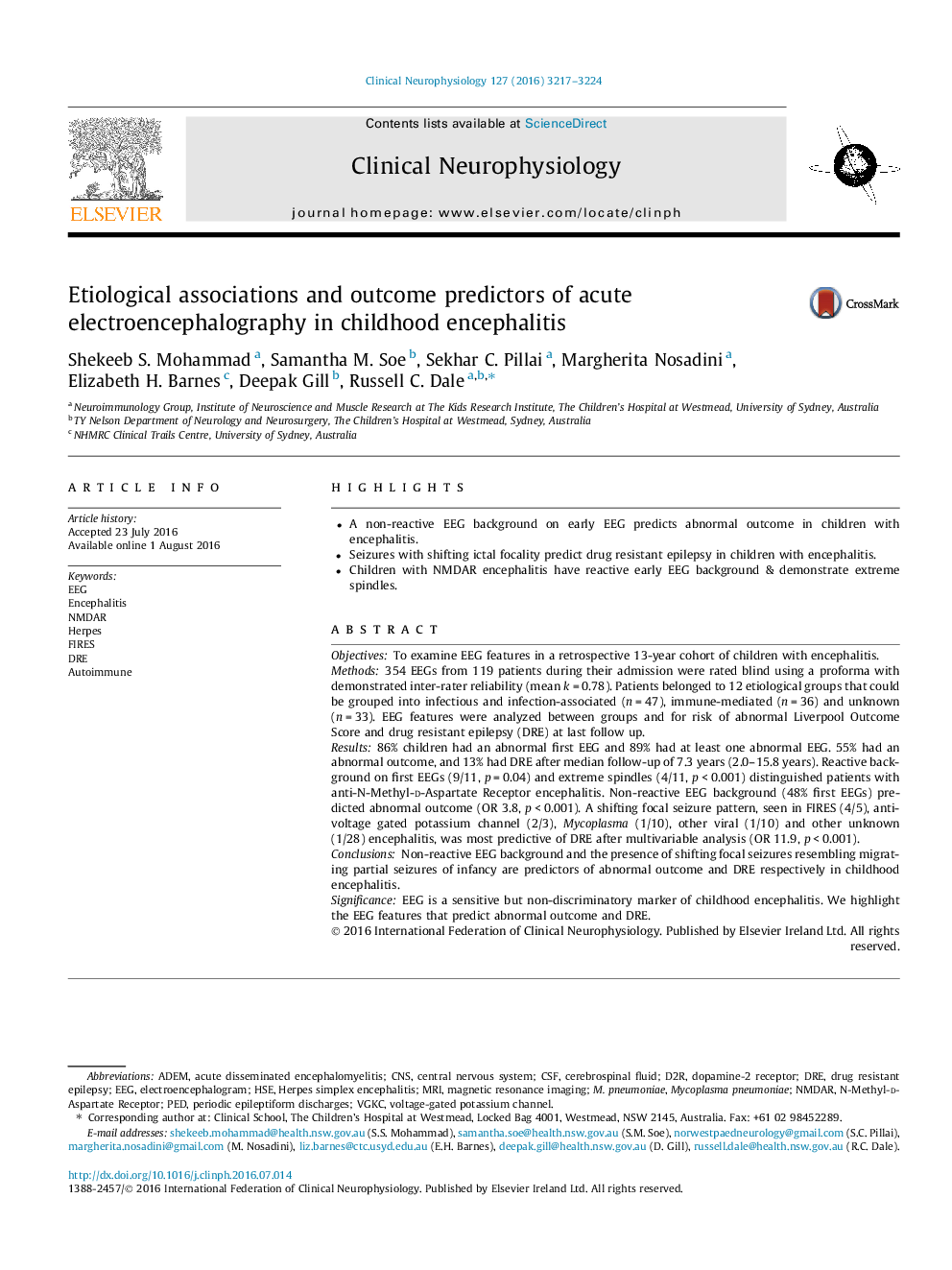| Article ID | Journal | Published Year | Pages | File Type |
|---|---|---|---|---|
| 5627870 | Clinical Neurophysiology | 2016 | 8 Pages |
â¢A non-reactive EEG background on early EEG predicts abnormal outcome in children with encephalitis.â¢Seizures with shifting ictal focality predict drug resistant epilepsy in children with encephalitis.â¢Children with NMDAR encephalitis have reactive early EEG background & demonstrate extreme spindles.
ObjectivesTo examine EEG features in a retrospective 13-year cohort of children with encephalitis.Methods354 EEGs from 119 patients during their admission were rated blind using a proforma with demonstrated inter-rater reliability (mean k = 0.78). Patients belonged to 12 etiological groups that could be grouped into infectious and infection-associated (n = 47), immune-mediated (n = 36) and unknown (n = 33). EEG features were analyzed between groups and for risk of abnormal Liverpool Outcome Score and drug resistant epilepsy (DRE) at last follow up.Results86% children had an abnormal first EEG and 89% had at least one abnormal EEG. 55% had an abnormal outcome, and 13% had DRE after median follow-up of 7.3 years (2.0-15.8 years). Reactive background on first EEGs (9/11, p = 0.04) and extreme spindles (4/11, p < 0.001) distinguished patients with anti-N-Methyl-d-Aspartate Receptor encephalitis. Non-reactive EEG background (48% first EEGs) predicted abnormal outcome (OR 3.8, p < 0.001). A shifting focal seizure pattern, seen in FIRES (4/5), anti-voltage gated potassium channel (2/3), Mycoplasma (1/10), other viral (1/10) and other unknown (1/28) encephalitis, was most predictive of DRE after multivariable analysis (OR 11.9, p < 0.001).ConclusionsNon-reactive EEG background and the presence of shifting focal seizures resembling migrating partial seizures of infancy are predictors of abnormal outcome and DRE respectively in childhood encephalitis.SignificanceEEG is a sensitive but non-discriminatory marker of childhood encephalitis. We highlight the EEG features that predict abnormal outcome and DRE.
